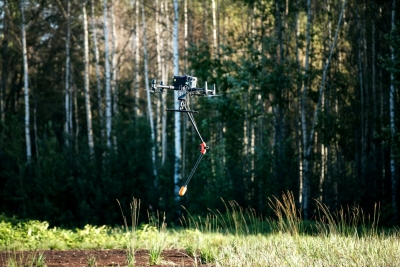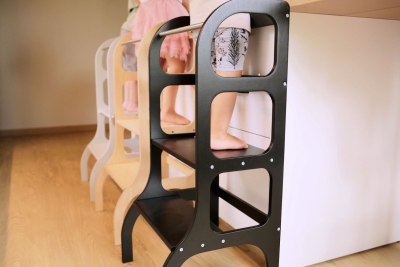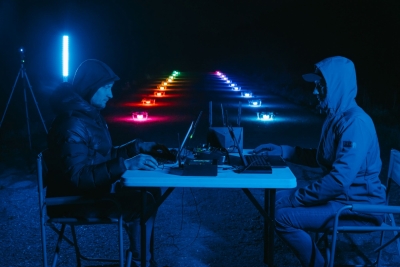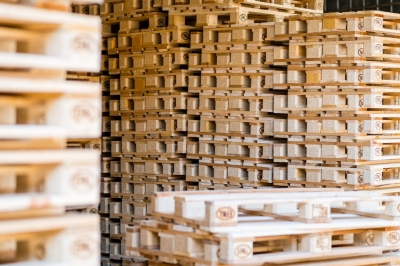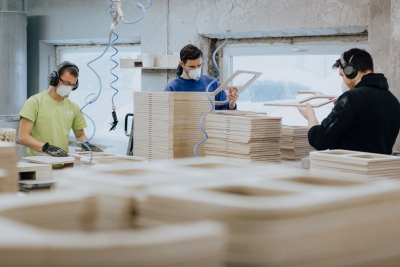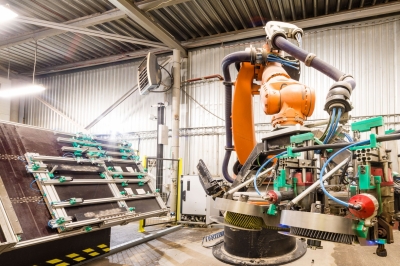Although the South Korean market seems distant and strange to most Latvian companies, over the last 10 years the trade volume between the two countries has grown fivefold, reaching almost 130 million euros. Those who know this exotic market well, see the future of cooperation with South Korea in a positive light with great potential for both increasing trade volumes and diversifying export products.
In 2022, South Korea was Latvia’s 40th largest export and 42nd largest import partner. “This is one of the most important remote markets for Latvia. Representative Office of Latvia in South Korea is a proof of it, as nobody has thought of opening an office here just like that. The Investment and Development Agency of Latvia has conducted a survey of entrepreneurs, and the importance of this market is a conclusion based on data”, says Mārtiņš Baumanis, Head of the Representative Office in South Korea.
He compares South Korea with a market of a wealthy Western European country, such as Germany or France. And to ignore a business opportunity this big would be madness. “If a company already has a steady export to Europe and needs to grow, this is one of the first markets to invite yourself to”, he believes.
The market demands quality
“The country is well-developed, and people seek new products. Improving the quality of life in South Korea is something people are increasingly thinking about. South Korea has gone through an economic leap. People do work hard here, but now they are starting to think about how to have a better life and find balance between home and work rather than how to earn more money”, Baumanis says.
Considering that buyers in South Korea value quality of life, products must also meet their high expectations. “In South Korea, Chinese products are widely available, but quality is an important factor for Koreans. This is the reason of the high demand for things that improve quality of life and for children’s goods on which the locals spend quite a lot of money.
For example, South Korea is one of the most important export markets for Latvian children’s books. Moreover, any premium item with a story will be appreciated in South Korea”, he adds. In the field of industrial products, Latvijas Finieris is doing well in South Korea partnering with shipbuilding companies there. Baumanis believes that this cooperation has a potential for the development.
“South Korea is a highly developed market in terms of technologies. They invest heavily in high-tech and look at technology companies from other countries. I like that the South Korean market is always on the move. They are thinking and developing non-stop. We have a good synergy with our partners because we both want to be at the forefront and think about driving technologies forward all the time”, says Madara Mazkalne, Sales Director at the drone technology development company SPH Engineering.
Completely different marketing
Baumanis notes that South Korean partners often want assistance with marketing. So you should not think that you can just dispatch the goods and your partners will be selling them all by themselves. “It’s not how it works in real life. They would often expect some financial support or a discount for adapting the product marketing to the South Korean market. Otherwise, they will place your products on the bottom shelf and subsequently sell them at half price, and the next order will not follow. And the market is gone for that Latvian manufacturer”, he explains.
To start a cooperation, it is important to show your good will so that the other party feels that you are interested in a long-term cooperation.
That is why he recommends offering a discount for the first order, say 10%, or some other special incentive. “They expect it because they do it themselves”, Baumanis shares his knowledge.
In the experience of Linda Riekstiņa-Šnore, the founder of the children’s furniture brand Ette Tete, South Korean partners are not overdemanding in terms of discounts: usually the cooperation is based on logic and with long-term outlook.
Ette Tete has left all marketing activities in South Korea to its partner because of significant differences in tastes. For example, nowhere else has the product personalisation come with so many cute hearts. “If we went in this market with our usual pastel palette, we would be lost there. So, we have left marketing to our partner”, Riekstiņa-Šnore explains.
At the same time, personal involvement in business is important in this market. For example, when their partner received its first delivery and was preparing for sales, they asked Ette Tete to make a short video showing how excited the brand was about entering the South Korean market. “For them, a story is important of how we as a family created these products and that we are very happy about South Korean families who will also have them now. It is very personal”, she adds.
Cooperation may take a long time to take off
“Building relationships with Koreans is a long process. Everything happens somewhat slowly, so you have to have patience and a strong desire to enter that market. There are stories of success for Latvian businesses there, but they have required two or three years of effort, such as regular participation in exhibitions and communication with partners. Your desire to enter the South Korean market has to be strong”, Baumanis says.
On the other hand, Riekstiņa-Šnore believes that a lot of things depend on what kind of person is on your partner’s side. Ette Tete managed to get a contract relatively quickly and everything went on pretty smoothly. “We still have discussions about the product and its adjustments from time to time because they have a slightly different idea of what a quality product is. The paint layer is thick enough to protect the wood, but we still want to see the texture of the wood. It does not matter that much to them”, Riekstiņa-Šnore adds.
The power of hierarchy should be taken into account
Baumanis notes that South Koreans do not expect the foreigners to know their local culture or traditions. However, you must remember to give your business card with both hands. “If you are given a business card, you must read it straight away and understand whom you have met. It is a sign of respect and it is very important”, he points out.
Mazkalne adds that South Korea has a clear hierarchy, so you must always understand who your point of contact is in your partner’s company and how high they are on the corporate ladder. From that you can get an idea how fast things will be moving along.
The head of the Latvian Representative Office in South Korea mentions some other cultural differences. Over there, nothing is written in red ink, especially people’s names. “During a conversation you must be 100% focused on the person you are talking with. Even making notes on your phone will be viewed negatively. Prompt feedback is also very important, and after a meeting, on the same day, you should write an email saying thank you for the meeting, the first steps taken and even propose time of the next meeting”, suggests Baumanis.
Business may also begin unexpectedly
Riekstiņa-Šnore admits that they came to South Korea by chance: someone working in imports bought a piece of Ette Tete furniture and then approached the company. Ette Tete started working with their partner in 2020 and already in 2022 South Korea accounted for 5% of their sales. “I think there is still a huge potential left, because our trade volumes currently are relatively small. We can grow and then grow again there”, Riekstiņa-Šnore adds.
The South Korean partner of SPH Engineering has also showed its interest in cooperation proactively. “However, we did our homework very well and had a quality product”, Mazkalne says. Now the company has a dedicated employee focused on sales in Asia, including South Korea which for SPH Engineering has become the third largest export market after North America and Canada. Customers mostly use the software developed in Latvia both for drone flight planning and automation and for drone shows, but there have also been some custom made projects. “South Korea has the most impressive drone shows in the world. The local South Korean record belongs to a show where 1500 drones were up in the air on New Year’s Eve. And we can be proud that they are based on our technologies”, Mazkalne says.
She views the development prospects in the South Korean market positively: “Of course, we want to expand our business in South Korea and the entire Asia-Pacific region.”
Kronus exports to Korea account for 2 to 5% of sales
According to Aleksejs Volcenkovs, Kronus Sales Director in Asia-Pacific and Americas, people in South Korea love wood, but they don’t have the same forestry tradition as in Latvia. That is why a large share of timber industry products are imported to the country, and therefore Kronus sees a great potential for themselves in that market.
With South Korea currently accounting for 2 to 5% of Kronus turnover, it is in the top 15 export destinations for the company. The company exports both wooden packaging and gardening products, such as high boxes for growing flowers or vegetables. It is in the gardening product category where Kronus sees great potential for themselves in South Korea.
Don’t forget about certification
Certification is one of the biggest challenges. “If you have an American or a European certificate, it’s great for marketing, but it won’t do in Korea anyway. So, the first step should be to find out the regulations and other requirements keeping in mind that South Korean standards are stricter than those of the European Union. Some authorities have a website in English, others don’t, but I can help with market research”, Baumanis says.
Riekstiņa-Šnore also notes that all products must comply with South Korean domestic standards. Ette Tete had to test their products, but everything complied with the relevant standards.
Everything happens in person
Baumanis admits that South Korea has its own challenges and peculiarities. One of the biggest challenges is the distance.
“The money spent by a company on the journey from Latvia to South Korea is a bare minimum you need to invest to have a chance of establishing a relationship. Even during the pandemic Koreans did not switch to remote work, it’s simply not in their culture. They think that if you are not in the office, but at home, then most likely you are relaxing rather than working. That is why everything here is done in person”, Baumanis adds.
And that is why personal presence when building relationships is invaluable. “In my work, I see proof of it all the time. I can send an email in Korean or English, but hardly ever can I tell whether any action will follow. But when we meet in person, it's totally a different thing. Sometimes, after a meeting, on the same day, they will tell you what they have already done and what we can plan further”, Baumanis shares his experience.
Mazkalne also says that the South Koreans need personal contact. That is why representatives of the company come to visit their partners. “And you should remember that it won’t be just one meeting. They need to build trust to both the company and its representatives”, Mazkalne adds.
Also, it is a market where people have great respect for their neighbours and those around them. Ette Tete sends its products disassembled and the buyer himself needs to put the product together. One of the products has 72 pins to be driven into a frame. The partner said that doing it with a hammer was too noisy and asked for this product to be delivered assembled. “At that moment, I didn’t even know what to say, because sending assembled products is very expensive as they take up more space”, Riekstiņa-Šnore says. In addition, tiny apartments are typical for South Korea so small and space-saving products sell the best.
Speaking the language is very important
“In countries like China, South Korea and Japan, understanding their culture is very important. Working in Asia requires knowledge, esteem, insight, respect and understanding of how they perceive information. Our sales specialist has lived in China for 10 years and her negotiations with our partners in Asia go very well. If at some point another colleague suddenly joins in, the response from the partners will come much slower”, Mazkalne says. She adds that the language barrier is one of the causes of misunderstandings. The company has been successfully working in South Korea for several years, but only recently has localised its software in Korean. “It has immediately increased their interest in replacing and actually using our software. Yes, they speak English, but if a company has marked South Korea as an important target market, they would need someone who speak the language”, Mazkalne adds.
Baumanis also points out that a relationship will be established easier and develop faster if the company can communicate with its customers in Korean.
“Language brings you closer to the culture and helps you get a better understanding why many things happen like that and not in any other way. Trying to speak their language is a huge advantage over a competitor”, he notes.
Volcenkovs also mentions cultural differences, especially food. “A visit to South Korea may be a challenge for a Latvian as Koreans eat a lot of seafood, and often raw. It is not especially popular among us.”
Business negotiations are also quite difficult because it is hard to read emotions of the Koreans. “I would say that they always have that neutral facial expression, you know, a poker face. That is why business negotiations are much more difficult in comparison with how they are, for example, in Germany, Denmark or France, where you can deduce at least some of the thoughts and emotions of the other party from their facial expressions”, Volcenkovs says.
Business and personal relationships mix together
According to Baumanis, one of the peculiarities of that market is that business and private aspects of life are not as separated as elsewhere. “If an entrepreneur has a South Korean partner's WhatsApp number, there is a great chance that they will contact each other outside working hours, talk about their families and send each other pictures of their kids. South Koreans tend to erode the boundaries between work and private life. Sometimes it may seem unacceptable to Latvians”, he adds.
Riekstiņa-Šnore also had a hard time getting used to the close relationship with somebody she has never met in person. For example, the company sent a Christmas gift to its partner and in return received pictures of the partners’ children playing with it. “Our children were born at about the same time. He sent me a happy email with a picture of his newborn, but I was wondering whether I had to respond with the same. We are not used to such communication. We do not tell our partner that we’ve had a child. Most of the time they have no idea of what's happening in my private life. But in South Korea, family and business life is indivisible”, Riekstiņa-Šnore says.
Volcenkovs also notes that entrepreneurs in South Korea like to develop personal relationships with their business partners. Usually, business talks during the day are followed by dinner and drinks to get to know each other better. “It helps to build relationships. All our best business contacts have been established during dinners over informal conversations”, he adds.
Riekstiņa-Šnore shares her impression that after a supplier has built their partners’ trust and proven themselves, they may get away with more in that market than elsewhere in the world. “If something’s gone wrong, but is being dealt with, your customers will remain loyal and continue working with you”, Riekstiņa-Šnore believes. Volcenkovs also says that Koreans are very reliable partners. They also pay close attention to detail, and it makes their quality standards much stricter than European ones.
Continue with the cooperation
In 2018, President of Latvia Raimonds Vējonis visited South Korea and it was the first visit of the Latvian highest state official to the region. During the visit, a Memorandum of Understanding was signed to promote mutual economic relations, strengthen international trade and cooperation opportunities in the area of technology transfer and start-up development.
This year, a Memorandum of Understanding for the cooperation in the field of start-ups and innovations was signed. It provides mutual support for the start-up network expansion, development and entry into the Latvian and South Korean markets, and cooperation in sustainable innovation, new technology, smart mobility and digitalisation spheres. During the visit, the Memorandum of Understanding between the Latvian Development and Investment Agency and the Korean investment organisation Eugene Capital and Securities for cooperation in the area of investment attraction, and a Memorandum of Understanding between the Association of the Latvian Chemical and Pharmaceutical Industry and the Korea Biotechnology Industry Organisation for cooperation in the biopharmaceutical industry and healthcare were signed.
During the meeting, the parties discussed cooperation opportunities in high-technology projects and research programmes, including in the areas of biomedicine, biotechnology and the Smart Specialisation Strategy of Latvia, as well as in the aerospace sector where Latvia has a developed infrastructure, and modern science and technologies.
Representative Office of Latvia in South Korea offers Latvian businesses consultations in matters related to South Korea. “We talk about Latvia all the time: we participate in exhibitions, we create national stands, we present products, we bring in local consultants. Everything that we can do here locally, we do. If I have to meet a Korean potential client on a Saturday night, I do that. It’s my job”," Baumanis says.
The potential is huge
“South Korea is one of Latvia’s strategic partners both in terms of investment attraction and exports, so we want to expand our cooperation”, says Laura Štrovalde, Deputy Director General in charge of investment and energy at the Investment and Development Agency of Latvia. Baumanis and Volcenkovs also see good business opportunities for Latvian companies in South Korea and feel positive about the future: “The future has no other direction but up”, M. Baumanis says.



